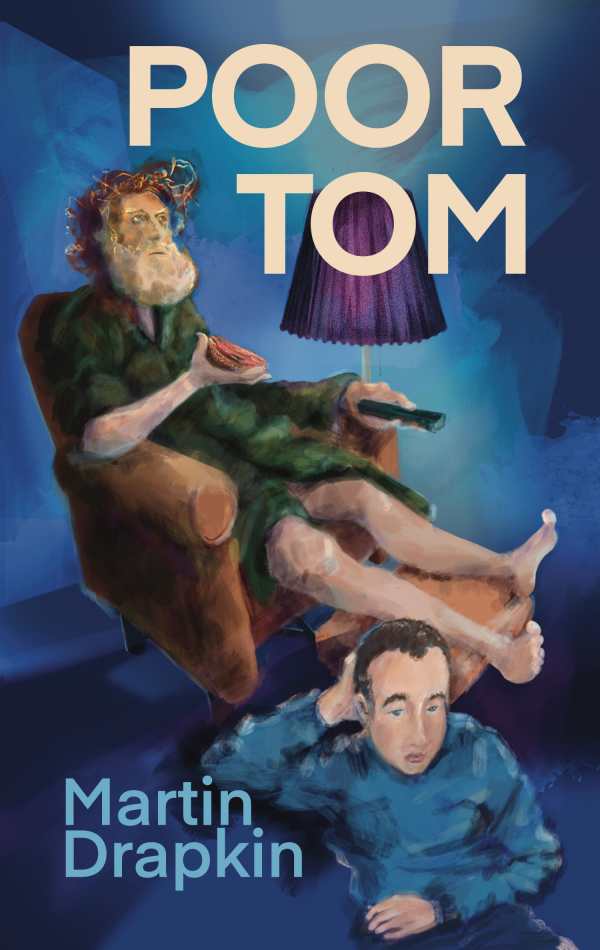Poor Tom
In the tragicomic novel Poor Tom, a distressed man muses through a series of what-ifs on his way to a delayed coming-of-age.
In Martin Drapkin’s novel Poor Tom, a middle-aged man muddles through his relationships with the help of Shakespeare.
Julius, who spent much of his life helping his father prepare for his theater roles, uses William Shakespeare’s King Lear as a guide for navigating his relationships. He compares himself to the virtuous character Edgar, disguised as Poor Tom in the play, who helped Lear recognize value in the vulnerable. Still, as an event photographer and a part-time home painter, Julius lives in his father’s shadow. His girlfriend, Naomi, is verbally abusive, and he battles anxiety and insomnia. Faced with the challenges of caring for his father, himself, and Naomi’s son, Benji, he hopes to establish a more independent life.
The book’s throughline (that Julius is the Poor Tom to his father’s King Lear) is both exaggerated and effective. Julius’s father’s complexities are centered: he spent his life on stage but could never talk about his wife’s suicide or his son’s struggles off-stage. Instead of being nurtured as his son, Julius took the position of a stagehand, running lines and capturing his grand moments on film. In acknowledging their different father-son roles, Julius comes to recognize the power of individuals regardless of their status in life. It’s a potentially invigorating realization.
But Julius’s father’s performances happen off-page; to succeed in this story, Julius is tasked with achieving some distance from the Shakespeare paradigm. As he begins to see people for who they truly are and to form a self-identity that’s separate from his connections to others, the novel loses its center somewhat. Unanchored, Julius struggles; he returns to comparing himself to Poor Tom, and he becomes stuck in a loop of thought that impedes him from taking real action.
As his lack of impulse control leads him to ruin relationships and become consumed by his own imagination, Julius becomes an off-putting hero. Others’ stories are filtered through his perspective; their characterizations are unreliable. And Julius uses jarring language, as when he compares a Polish woman who’s working at a Jewish diner to a guard at Auschwitz and likens an Asian waitress to a porcelain doll. He imagines having sex with every young and skinny woman he sees. He seems unable to get out of his own way; the change that he hopes for eludes him.
In the tragicomic novel Poor Tom, a distressed, flawed man attempts to come of age in midlife, musing through a series of what-ifs in the process.
Reviewed by
Addissyn House
Disclosure: This article is not an endorsement, but a review. The publisher of this book provided free copies of the book and paid a small fee to have their book reviewed by a professional reviewer. Foreword Reviews and Clarion Reviews make no guarantee that the publisher will receive a positive review. Foreword Magazine, Inc. is disclosing this in accordance with the Federal Trade Commission’s 16 CFR, Part 255.

